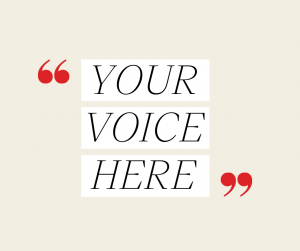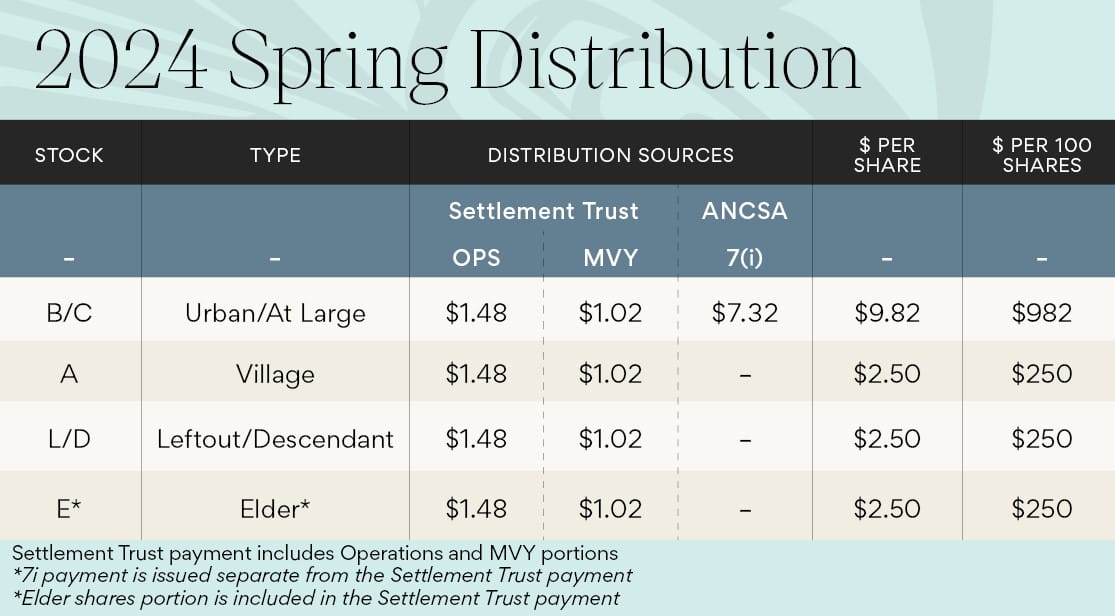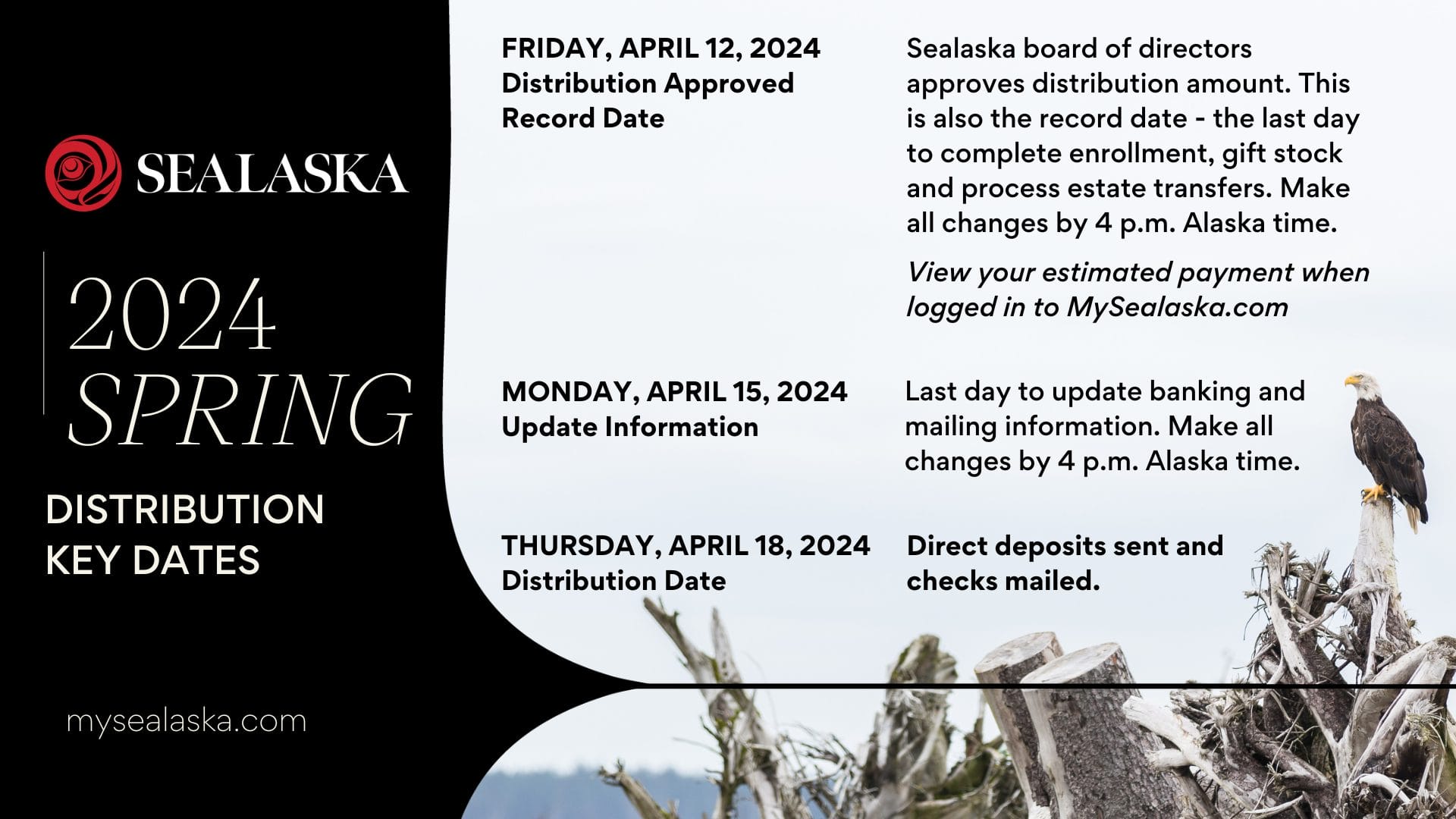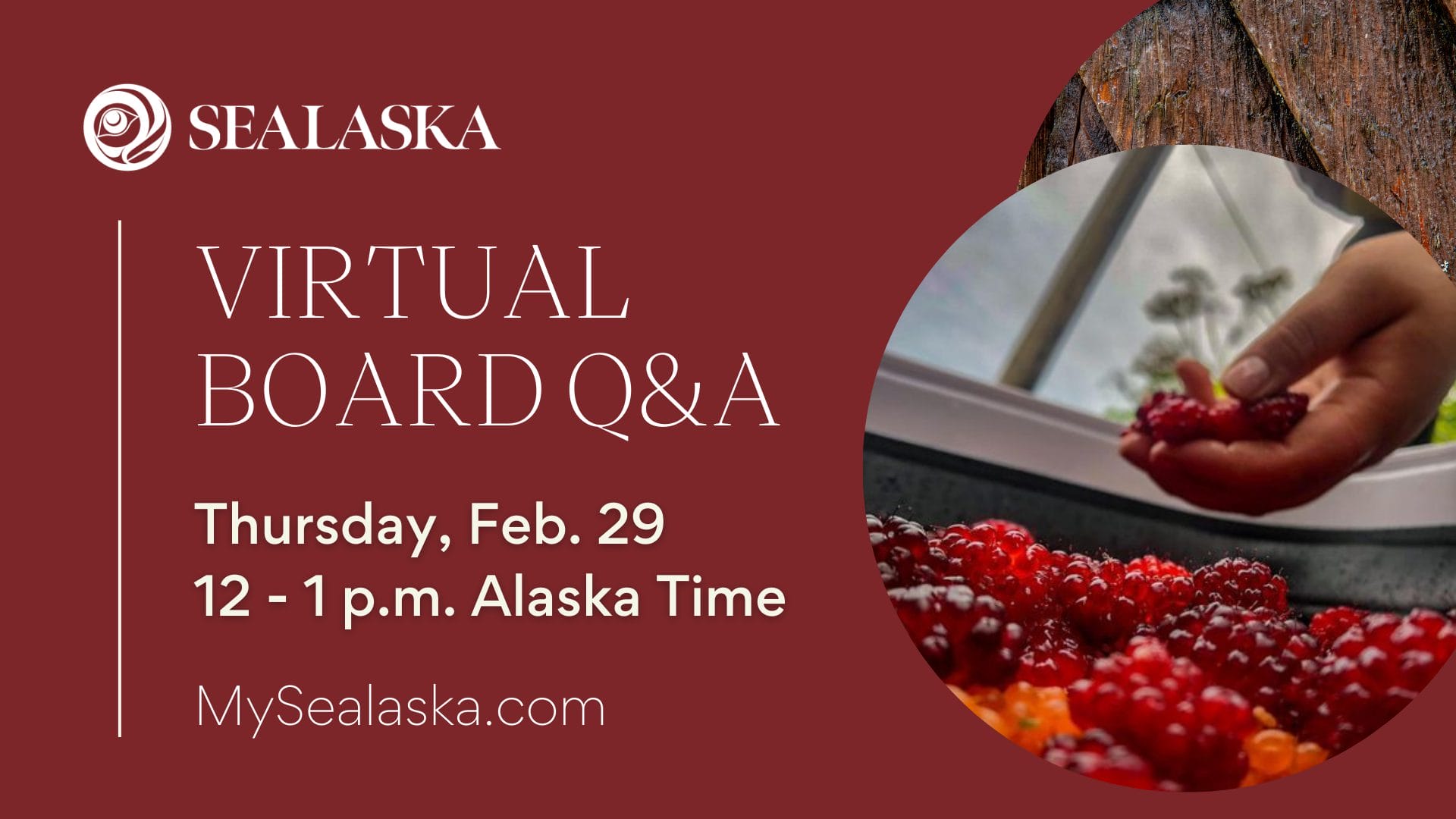Your Stories About Blood Quantum: Subsistence Hunting and the Marine Mammal Protection Act
Wednesday, October 20, 2021
Latest News
Sealaska Announces Spring Distribution of $19.2 Million
Posted 4/12/2024
As part of Sealaska’s continued investment in our communities and region, a spring 2024 distribution totaling $19.2 million will be issued to shareholders on Thursday, April 18. Sealaska’s board of directors approved the distribution at a meeting held in Juneau on Friday, April 12. The upcoming distribution includes dividends totaling $4.5 million from Sealaska’s ocean-health business platform, $3.1 million from the Marjorie V. Young (MVY) Shareholder Permanent Fund and an additional $11.6 milli...
Sealaska Spring 2024 Distribution Date Announced
Posted 3/19/2024
The Sealaska Board of Directors will meet on Friday, April 12, 2024, to approve the amount for Sealaska’s 2024 spring distribution. The distribution will take place on Thursday, April 18. Shareholders can prepare for a seamless distribution by completing any enrollment or stock transfer paperwork, including gifting or inheritance, by Friday, April 12 at 4 p.m. The last day to make changes to addresses or direct deposit information is Monday, April 15, , before close of business, or online via M...
Sealaska announces Desiree Jackson to serve as Vice President of Administration and Outreach
Posted 3/6/2024
Jackson’s goals, experience are aligned with Sealaska’s vision for shareholders, communities and the region’s collective future.
A focus on strategy, values and excellence has led Desiree Anax x’aséigu yé Jackson to her new role as Sealaska’s Vice President of Administration and Outreach. Jackson has served as the executive director of...
First Quarter Board Q&A provides shareholders an opportunity to connect with their board
Posted 3/4/2024
Members of Sealaska’s board of directors had an opportunity to connect with shareholders and answer questions during the Feb. 29 board Q&A session hosted on MySealaska. Directors Barbara Cadiente Nelson, Ka’illjuus Lisa Lang joined Executive Chair Joe Nelson and Board Youth Advisor Deikeenaak’w Connor Ulmer in providing an update following January’s board meeting and shared upcoming opportunities and associated deadlines with participants. Sealaska’s language grant application period i...
Virtual Shareholder Orientation offers connection, information for original and new shareholders alike
Posted 2/26/2024
Sealaska’s Shareholder Relations team hosted a virtual shareholder orientation on Tuesday, Feb. 20 for an audience of nearly 170 shareholders from far and wide. This event offered both new and long-term shareholders a chance to learn more about the benefits and responsibilities of being a shareholder and answer questions about specific Shareholder Relations policies, procedures and protocol.
Shareholder Relations Manager Jodie Gatti, who joined the Sealaska team in November, was joined by...
 In early September, Sealaska asked shareholders to tell us how blood quantum impacts their lives. So far more than 600 people have responded. We are sharing a selection of quotes and perspectives in social media and on our website to help advance the discussion around blood quantum, and to better understand how it impacts shareholders and descendants. Sealaska is exploring the possibility of changing the eligibility requirements associated with enrolling for Class D (Descendant) stock, which currently include ¼ Native blood quantum.
In early September, Sealaska asked shareholders to tell us how blood quantum impacts their lives. So far more than 600 people have responded. We are sharing a selection of quotes and perspectives in social media and on our website to help advance the discussion around blood quantum, and to better understand how it impacts shareholders and descendants. Sealaska is exploring the possibility of changing the eligibility requirements associated with enrolling for Class D (Descendant) stock, which currently include ¼ Native blood quantum.















